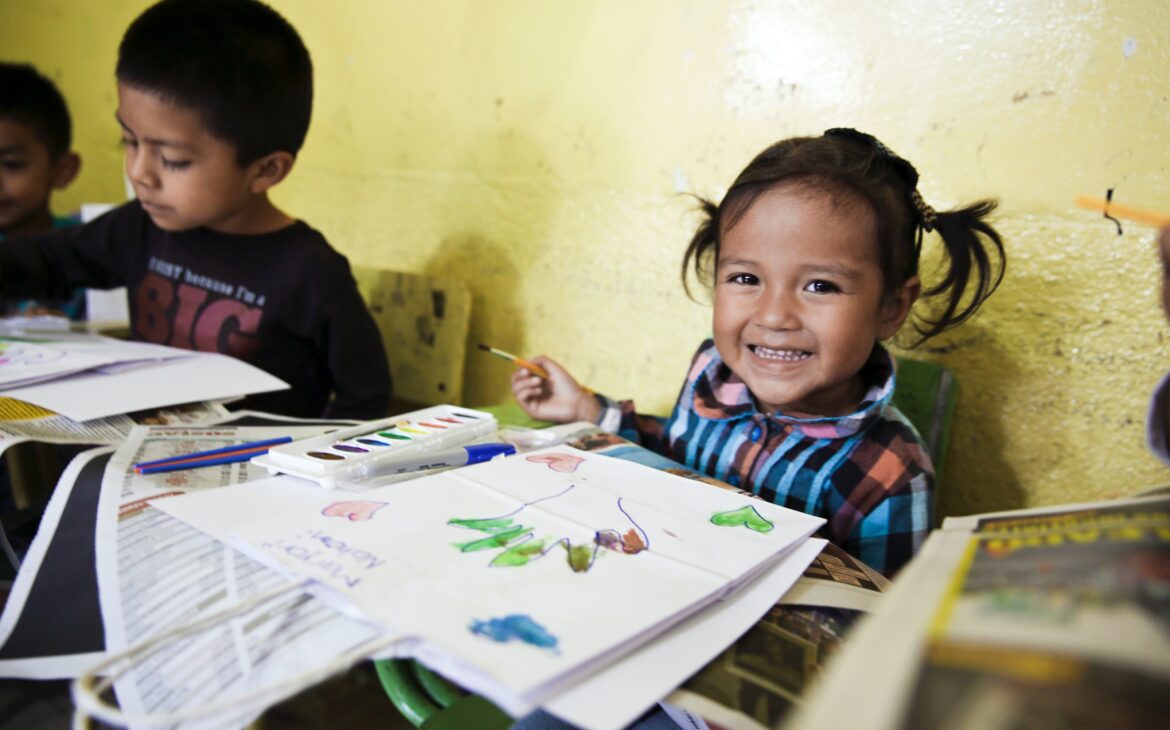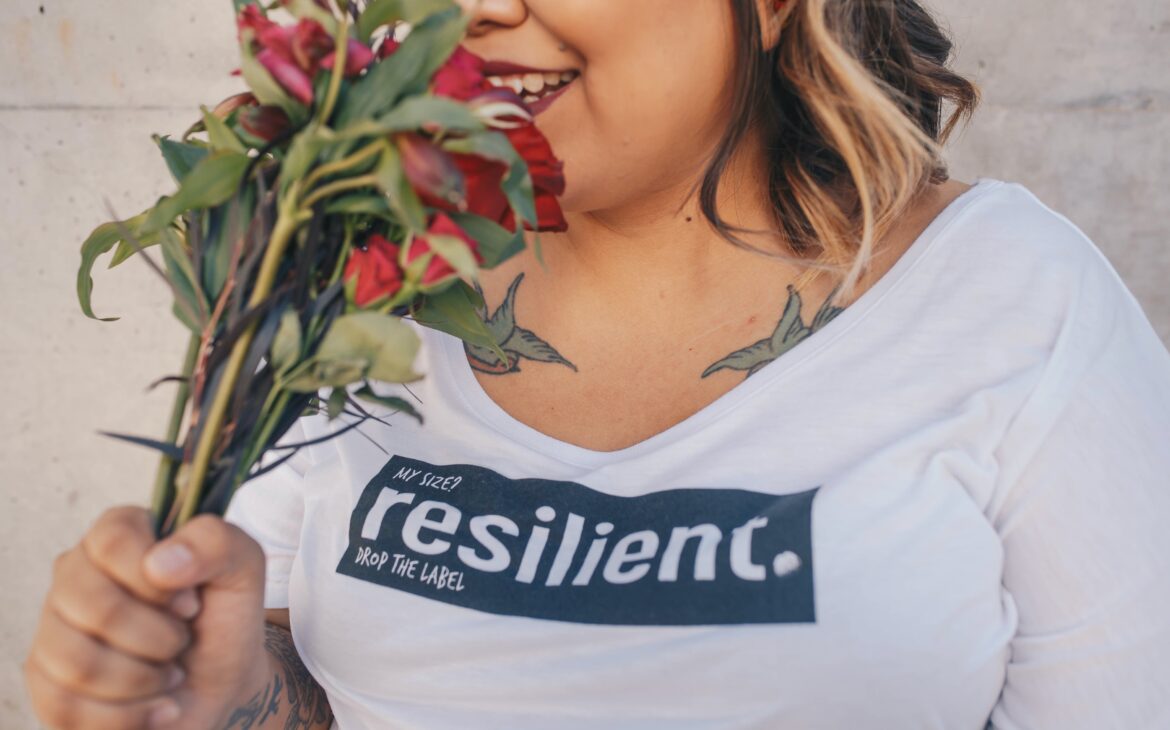First-Generation Trauma in the Latino Community By: Mónica Duarte


After spending the past few years healing from trauma, I can look back at my past and acknowledge the trauma I experienced as a first-generation Latina. First-generation Latinas were born in a Latin American country and moved or were brought to the US, usually as children.
My intention in sharing my story is to help other first-generation Latinas who have similar experiences feel validated. After all, the norm in our community is not to talk about the trauma we’ve experienced. To break free from generational trauma, we must start talking about it.
As an immigrant from Mexico, I arrived in the U.S. when I was five. I remember feeling overwhelmed, confused, and numb being in a strange country. In Mexico, we lived in poverty in a pueblo. We lived humbly and connected to the land; we grew our food. Suddenly I was in an unfamiliar country, and this situation made me feel unsafe and uncomfortable.

When my mom put me in kindergarten, she placed me with an English-speaking teacher. This teacher started calling me a name I had never heard before. In Mexico, my name, Mónica, was pronounced with an accent on the o. Suddenly this strange lady was calling me a different name and would get angry at me for not understanding her. She thought I was ignoring her when I didn’t understand she was addressing me.
During my elementary school years, I learned to make myself small to survive. As a new immigrant in this country, I learned that people like me were not safe here, which created feelings of shame. We constantly had to watch our backs and deal with racism, even from other white Latinos in our community. This took a toll on my mental health. I didn’t have any support from anybody, including my parents, to help me cope with the intense feelings of shame, overwhelm, and uncertainty. I felt like an imposter because I didn’t feel I belonged in this country.
Additionally, I lived in a home where both of my parents worked all the time, so my older siblings and I were constantly left alone to take care of ourselves. My upbringing didn’t prepare me for society’s demands. I had to teach myself, but how is an elementary-aged kid supposed to teach themselves things they don’t know? I grew up in a domestic violence atmosphere and being shamed for being a girl. Several family members told me not to let anybody know what was happing at home. My trauma took on more layers due to this.
In high school, I finally got fed up with my home situation. Living at home after high school was not an option for me. When I thought about this happening, I felt extreme dread and anxiety. I had to figure a way out! This was when I decided to go to college.
My parents and family’s perception of me changed when I began college. Both of my parents put me on a pedestal. They thought I would be the person in our family to get us out of poverty and help make something of ourselves. This pedestal created a lot of anxiety in me. I felt the burdens of my parents’ dreams taking a toll on me. I thought it was my responsibility to create a new path for my younger siblings too. Due to this, I started developing anxiety attacks that made it challenging to attend class.
In college, there weren’t that many Latinos in my major or even in my school, so I felt isolated and had little support. I had nobody to look to for guidance since I was the first in my family to go to college. It was me trying to figure things out on my own. At one point, I started to see my school’s counselor for support, but she had no understanding of what it was like to be a first gen. What kept me pushing through this difficult time was the fear of failing to reach this goal and disappointing my entire family.
Even after I graduated from college, I started to have nightmares that I wouldn’t graduate. When I would wake up from my nightmare, I would remind myself that I already did that! These nightmares lasted for years.
After graduation, it took me six months to land my first professional creative job. This had its challenges. Even though I had a four-year degree that proved I could do the work, I felt like a fraud. I felt like I wasn’t supposed to be at this job. I worked long hours to prove my worth and continued studying topics I had already learned in school. Being the only Latina working with the “higher-ups” was also challenging. I didn’t feel like I belonged, so when I was at work, I was by myself unless I had to attend team meetings.
After a few years of working at this company, I thought about looking for another job to help me develop my career. However, every time I thought about moving on, I would experience intrusive thoughts like, “Who would want to hire me!” I felt shame for thinking I could grow past where I was. After all, in my head, I thought, “People like me don’t get this far.” Eventually, I left this job after a near-death experience in a car accident, but that’s a different story.

It wasn’t until I started to heal from my immigrant and first gen trauma that I began to have compassion for all my struggles and how far I had come in life. If you can relate to any of my experiences, I welcome you to be more compassionate towards yourself. As first gen Latinas, we have unique experiences that nobody else in our family has. They don’t know what it’s like to create a new path that has never been walked before for future generations. They won’t know what it’s like to figure things out on your own even though you have no idea what you’re dong. They won’t know how traumatizing it can be to be the first in your family to go to college. They won’t know what it’s like to try and advance in your career only to feel more like an imposter the higher up you go. There aren’t many people who look like us up that ladder. All they see are the final results. They can’t see all the struggles and traumas we experienced to create those results.
If I could do this over again, I would also not take on my family’s burdens. I love them, but having those burdens put on me was harmful. Let’s not forget that our parents are adults and they can put in the effort to reach their own goals too. They should not be living their dreams through us! Our responsibility is to pursue our own dreams, to live our lives authentically, and to heal from the challenges we had to overcome to succeed and grow as first gen Latinas.



